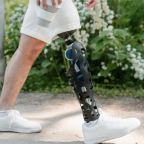
Nurturing Expertise in fertility treatment
The fertility clinic in the South West of England with the highest rate of success for IVF is consolidating its position as a regional centre of excellence by investing in the development of the next generation of fertility experts.
Five practitioners at the Bristol Centre for Reproductive Medicine (BCRM) are currently being supported to pursue two different higher qualifications, with two embarking on the Higher Scientific Training Programme (HSST) - which will eventually qualify them for consultant level/leadership roles - and three participating in the Scientific Training Programme (STP) - the qualifying programme for careers as clinical embryologists.
Mr Paul Wilson, BCRM’s scientific director, said: “Our entire reason for existence is to help women with fertility issues achieve their dream of having a baby. We’ve already been instrumental in thousands of births and we aim to help with many more, which means continuing investment in our staff’s expertise is essential.”
The clinic www.FertilityBristol.com is staffed by world-recognised experts in fertility, many of whom are involved in innovative research, including Jen Nisbett, one of the candidates who has just started on the HSST programme.
Jen won a top prize at Fertility 2020 – the sector’s annual national conference - with her research into how implanting frozen embryos in patients is more likely to result in a viable pregnancy in certain circumstances than using fresh embryos.
Jen and colleague Bonnie Dickinson have both committed to a demanding five-year workplace-based programme that will equip them to become consultants.
The programme includes a Healthcare Leadership and Management Postgraduate diploma from the University of Manchester, professional exams at the Royal College of Pathologists and large research projects for a Doctorate in Clinical Science.
Jen said: “Nationwide only around 60 scientists have enrolled on the HSST this year, of whom we believe just three are doing the Reproductive Science programme – and two of them are us.
“Both the HSST and the STP represent a huge amount of work for the trainees and for the department, but the clinic has world class facilities, technology and expertise so it’s best place to train.”
Jen and Bonnie are the first two candidates from BCRM to enrol on the HSST programme, but the clinic has already successfully trained a large number of STPs since the programme was launched in 2009.
Competition for entry to both programmes is fierce, with the most recently published statistics by the National School of Healthcare Science quoting 20 applications for every STP post, and HSST candidates facing the dual challenge of securing funding and undergoing a vigorous recruitment process for a relatively small number of highly-coveted places.
Currently IVF technologists Megan Atkinson and Hannah Clark are mid-way through the STP and Sophia Seabrook starts the programme this month.
The STP requires trainees to undertake rotations through various linked departments, including genetics, in order to learn how the Clinical Science disciplines work together. They then have to submit evidence to ensure they meet a huge number of competencies, and also study for a Masters degree.
Embryologist Victoria Bithrey, who has worked at BCRM since 2012 and was supported by the clinic to take the STP, raised the stakes for the current STP students when she graduated this summer with a Distinction for the MSc degree.
Paul Wilson concluded: “These programmes demand real commitment – both on the part of the trainees and those of us who are involved in delivering their training.
“But these dedicated students help perpetuate BCRM’s position as a centre of excellence, all playing their part in ensuring we continue to deliver the very best fertility treatment for NHS and private patients equally. So everybody benefits: trainees, the clinic, and patients alike.”













